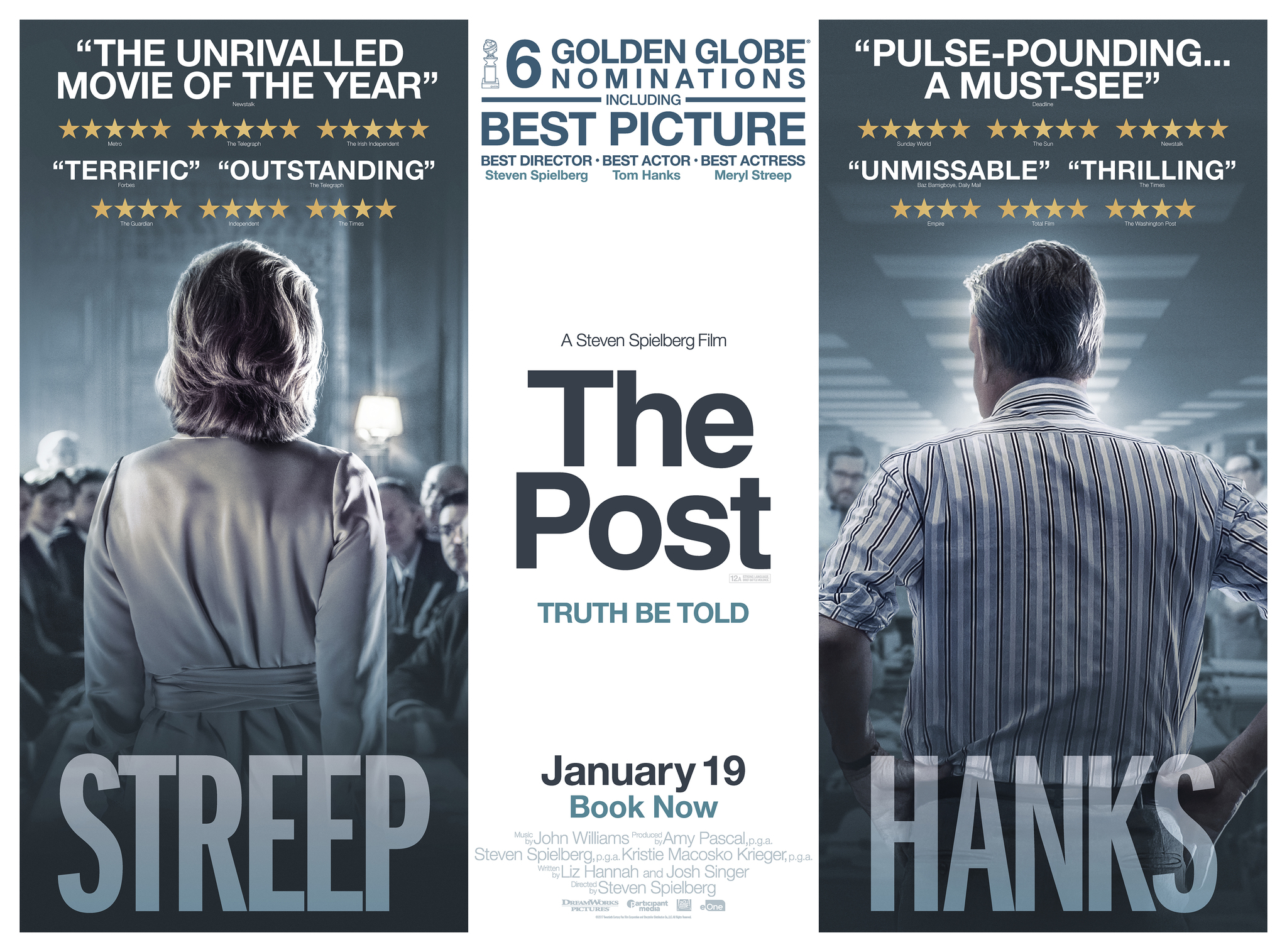The Post (2017)
- fanmovies
- November 2, 2024

The Post (2017) is a historical drama directed by Steven Spielberg, starring Meryl Streep and Tom Hanks. The film tells the true story of The Washington Post‘s pivotal decision to publish the Pentagon Papers in 1971, a classified government report that exposed decades of deception about the United States’ involvement in the Vietnam War. Blending a thrilling newsroom narrative with powerful themes of freedom of the press, The Post is a tribute to journalistic integrity, courage, and the essential role of the press in a democratic society.
Plot Overview
The story centers on Katharine Graham (Meryl Streep), the publisher of The Washington Post, and Ben Bradlee (Tom Hanks), the paper’s executive editor. Following The New York Times‘ bombshell publication of the Pentagon Papers, The Post gets its hands on additional sections of the report, sparking an intense debate about whether to publish the documents and risk prosecution. For Graham, the decision is especially complicated—The Post is preparing to go public, and the stakes are high both financially and personally. Despite mounting legal threats from the Nixon administration and resistance from her own advisors, Graham ultimately chooses to proceed with the publication, standing up for the freedom of the press and the public’s right to know.
Visual Style and Cinematography
Spielberg adopts a classic, restrained style, reflecting the serious tone of the story. The cinematography by Janusz Kamiński captures the 1970s newsroom with authentic detail, emphasizing cramped, paper-strewn desks and clacking typewriters to create a sense of immediacy and urgency. The film often uses natural lighting and muted colors to emphasize the weighty, historical feel of the story. Spielberg also heightens suspense through his visual storytelling, particularly in the scenes where journalists are piecing together information from the Pentagon Papers, evoking the intense pressure and risks the characters face.
Performance
Meryl Streep and Tom Hanks deliver standout performances, with Streep portraying Katharine Graham’s transformation from a hesitant, self-doubting publisher to a courageous defender of press freedom. Streep’s portrayal captures Graham’s complexity, from her vulnerability as one of the only women in a male-dominated field to her resolve in making tough decisions. Tom Hanks brings charm and grit to his role as Ben Bradlee, embodying the idealistic yet pragmatic spirit of an editor committed to revealing the truth. Their performances anchor the film, with both actors bringing humanity and authenticity to their characters. The supporting cast, including Bob Odenkirk, Sarah Paulson, and Tracy Letts, also delivers strong performances, enhancing the film’s rich ensemble dynamic.
Themes and Message
The Post is an ode to press freedom, emphasizing the crucial role of the press as a check on government power. The film explores themes of truth, accountability, and the moral responsibility of journalists to serve the public. It also highlights the courage needed to stand up to powerful interests and the personal and professional sacrifices that often come with defending democratic values. The film is also a celebration of female empowerment, depicting Katharine Graham’s evolution as a leader who must overcome her own insecurities and societal pressures to assert her authority. In light of its historical context, The Post serves as a reminder of the timeless importance of a free and independent press.
Conclusion
The Post is a powerful, thought-provoking film that combines Spielberg’s masterful direction with timely themes and stellar performances by Streep and Hanks. It’s both a gripping historical drama and an inspiring story about the courage to uphold democratic values. For viewers interested in journalism, history, or the defense of press freedom, The Post is a must-watch that resonates with modern-day relevance. It captures the relentless pursuit of truth and the sacrifices required to protect it, making it an important and impactful film about journalism and democracy.










